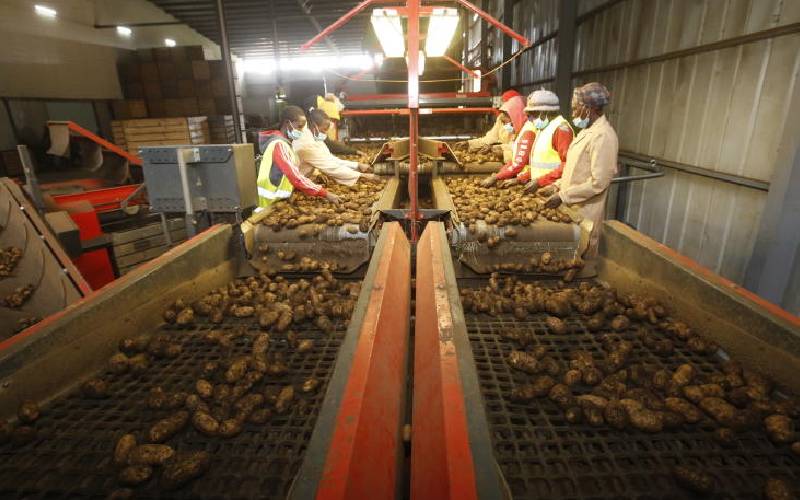×
The Standard e-Paper
Kenya’s Boldest Voice

Workers at the Agrico East Africa in Nakuru County sorting some of the harvested potatoes on November 19, 2021. [Harun Wathari, Standard]
A potato seed multiplication company in Nakuru is providing certified seeds to farmers throughout the year, in an effort to address decline in production of the crop as a result of the use of uncertified seeds.